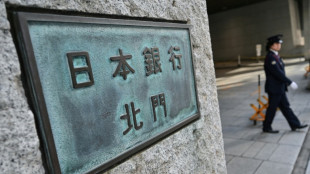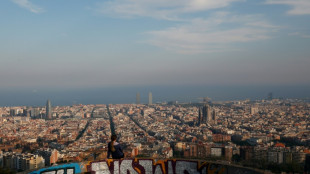

UK rail, postal staff halt strikes after queen's death
British railway and postal workers, at the forefront of sector-wide strikes over a cost-of-living crisis, have halted upcoming walkouts following the death of Queen Elizabeth II.
The Communication Workers Union had planned to continue a 48-hour stoppage Friday but it was called off "out of respect for" the queen, CWU general secretary Dave Ward said in a statement following the queen's passing in Scotland on Thursday.
The Trades Union Congress said it had postponed its four-day annual conference due to have begun Sunday.
"The UK's trade union movement sends our condolences to the Royal Family on the death of the Queen, and recognises her many years of dedicated service to the country," the TUC added in a statement.
The RMT rail union said it was suspending walkouts planned for next week and the TSSA transport union has called off its September strikes.
Train drivers' union Aslef has also suspended a planned stoppage.
"RMT joins the whole nation in paying its respects to Queen Elizabeth," its general secretary Mick Lynch said in a statement.
"The planned railway strike action on 15 and 17 September is suspended.
"We express our deepest condolences to her family, friends and the country," Lynch added.
Network Rail, which manages Britain's railways, said it welcomed "the unions' decision to call off" strikes.
In Scotland, refuse collectors had already decided a week ago to suspend walkouts as they mull an improved pay offer.
- Summer of strikes -
Tens of thousands of workers went on strike across Britain over the summer as decades-high inflation erodes earnings.
The walkouts have been spearheaded by the rail sector, which has carried out its biggest industrial action in 30 years.
Some proposed non-rail strikes were halted after unions and companies agreed pay deals at the eleventh hour.
But walkouts have still gone ahead by Amazon warehouse staff and criminal lawyers in recent weeks.
Analysts are forecasting sector-wide stoppages to continue this year as inflation keeps on rising.
New Prime Minister and Conservative party leader Liz Truss is seen as wanting to take on the unions, which are traditionally allied to the main opposition Labour party.
In a bid to ease the cost-of-living crisis, Truss this week announced a huge financial package that will cap domestic energy bills.
This will eventually help to trim inflation but not before many households and business first see bills increase in October.
Teachers and health workers have meanwhile hinted at possible walkouts should they not receive new pay deals deemed acceptable.
E.Carlier--JdB



